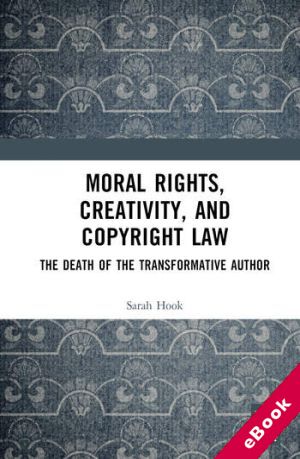
The device(s) you use to access the eBook content must be authorized with an Adobe ID before you download the product otherwise it will fail to register correctly.
For further information see https://www.wildy.com/ebook-formats
Once the order is confirmed an automated e-mail will be sent to you to allow you to download the eBook.
All eBooks are supplied firm sale and cannot be returned. If you believe there is a fault with your eBook then contact us on ebooks@wildy.com and we will help in resolving the issue. This does not affect your statutory rights.
This book argues that moral rights provisions in copyright law rest on a misunderstanding, or romanticization, of the role of the author.
The romantic conception of authorship, as a lone genius, creating from nothing, sensitive and vulnerable, has helped publishers push for strong copyright reform. But is this conception borne out in practice – especially in a world of meme culture, of artificial intelligence generated art and poetry, and of open source and fan fiction? This book probes the romantic vignette of the author through its legal adoption. Moral rights are rights that attach to the non-economic – for example, intellectual or emotional – interests of an author in their work. Much like defamation, moral rights see the right of reputation as superior to the right of freedom of expression. However, unlike defamation, moral rights are not protecting against defamatory actions against a person. In most jurisdictions, they are provisions set within copyright regimes; regimes whose purpose is to incentivize innovation. Challenging the way we think about authorship and how it should be protected by law, the book draws on a wide range of historical and contemporary examples to demonstrate how moral rights can constitute a barrier to transformative creativity. While authors and artists require strong rights to protect their ability to earn an income and incentivise creativity, moral rights, the book argues, may in turn actually harm their ability to do so.
This timely criticism of moral rights will appeal to researchers, students, policy makers and lawyers working in the area of intellectual property law, as well as legal theorists, sociolegal scholars and legal historians with relevant interests.